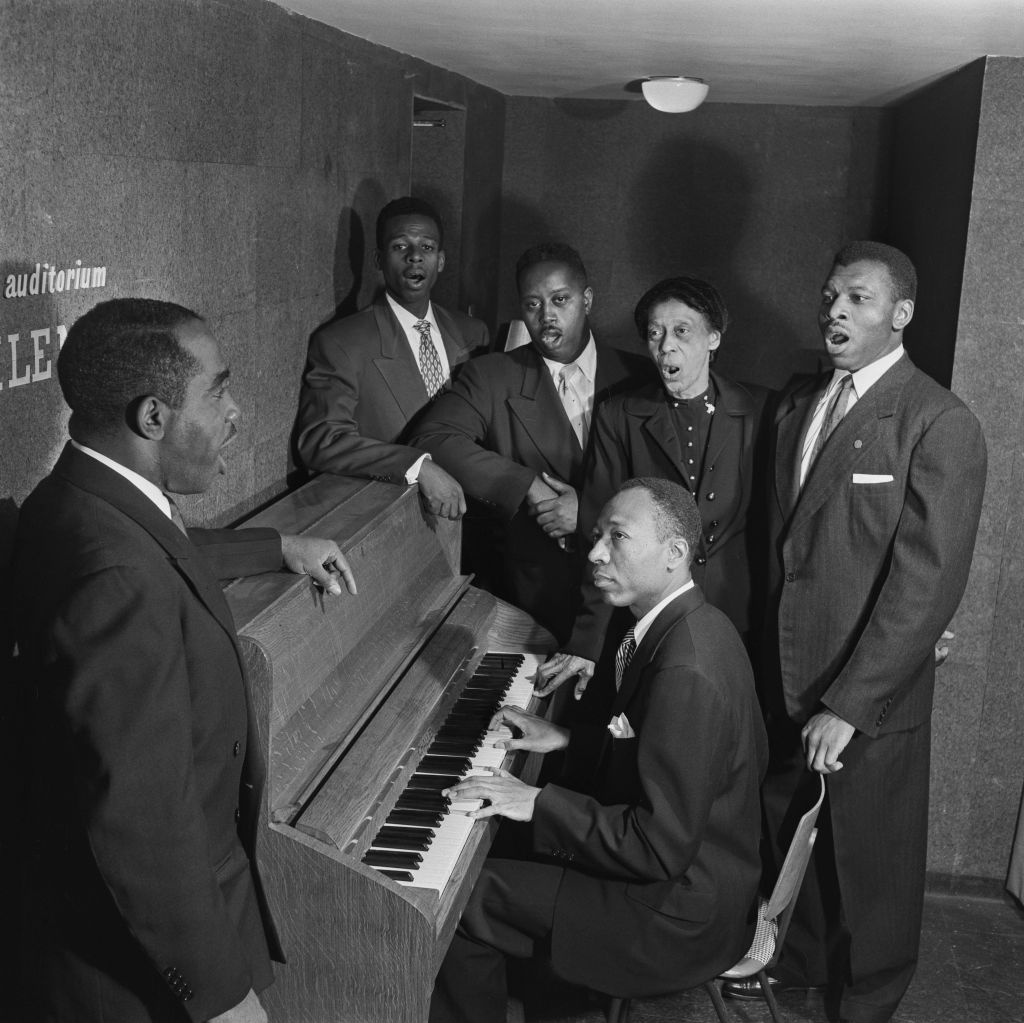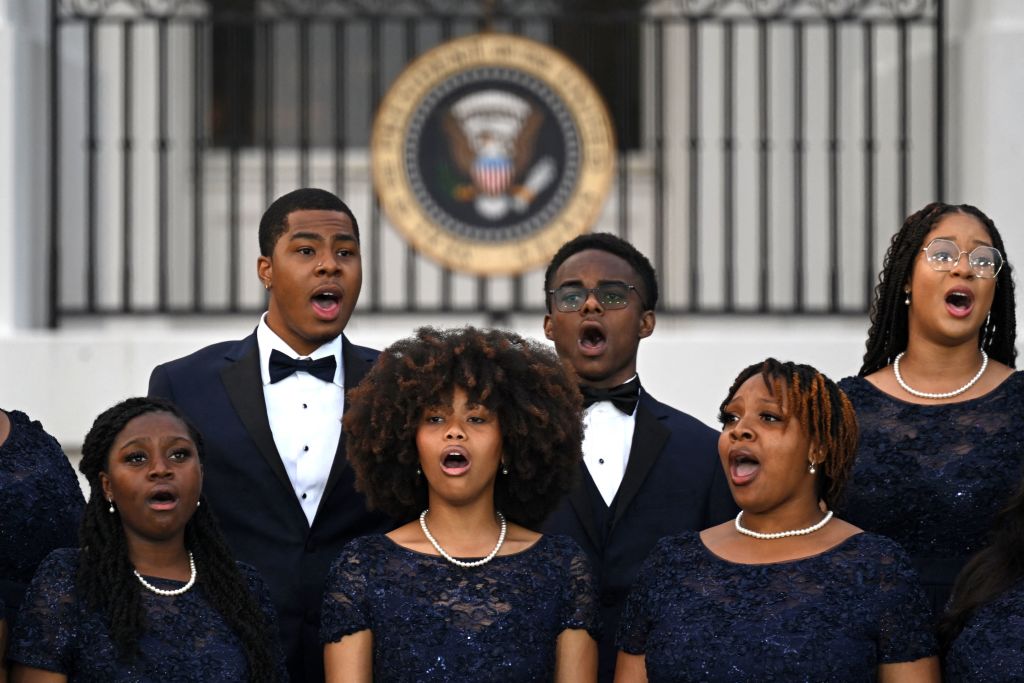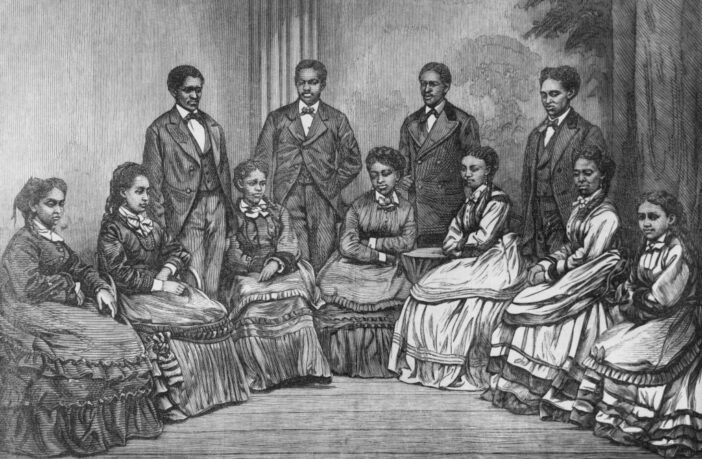In the throes of African enslavement in Nashville, Tennessee, Sarah H. Sheppard, a mother tending to her two children on a plantation, faced a difficult decision. Her young daughter was being groomed by their mistress to spy on her, a cruel manipulation that left Sheppard contemplating ending both of their lives for release. But her sister urged her to persist, promising God’s plan.
That spared child was Ella Sheppard, who would become a free woman, learn to play piano, and become the first Black choir director of the Fisk Jubilee Singers—a role that solidified her as the backbone and godmother of the historic group. Under her leadership, the Fisk Jubilee Singers gained worldwide acclaim and earned a GRAMMY Award 150 years after their inception.
Founded in 1866, Fisk University aimed to educate “men and women regardless of color” but struggled with finances in the aftermath of the Civil War. Treasurer and music director George Leonard White formed a choir that initially performed hymns and American classics to raise funds. However, it was their soulful renditions of Negro spirituals—born from the defiance of singing banned during slavery—that captivated white and, ultimately, global audiences. Early performances helped fund the construction of the university’s first permanent building, the Jubilee Building.
 American singer Henrietta Myers, director of the Fisk Jubilee Singers of Nashville, Tennessee, rehearses with her quintet of singers for a concert at the Royal Festival Hall in London, UK, September 1952. Image: George Konig/Keystone Features/Hulton Archive/Getty Images.
American singer Henrietta Myers, director of the Fisk Jubilee Singers of Nashville, Tennessee, rehearses with her quintet of singers for a concert at the Royal Festival Hall in London, UK, September 1952. Image: George Konig/Keystone Features/Hulton Archive/Getty Images.
As the choir’s reputation grew, so did their venues, but their distinction from popular minstrel shows of white people in blackface attracted racist threats and harsh criticism from the attendees and white press alike. Despite these obstacles, White and Sheppard pushed forward, grounding the group in prayer and naming them the “Jubilee Singers,” a nod to the biblical year of Jubilee, where slaves were set free. The name perfectly symbolized the choir’s mission, as many students were newly emancipated.
Sheppard’s influence expanded over time, orchestrating the choir’s landmark tours in Europe, where they performed for royalty and at elite events typically inaccessible to Black people. After a brief disbandment, the group was revived by John Wesley Work, whose leadership, along with Sheppard’s enduring guidance, birthed their first official recordings, including the famous 1909 rendition of “Swing Low, Sweet Chariot,” which was later added to the United States National Recording Registry in 2002.
Over the decades, the Fisk Jubilee Singers earned numerous honors, including a PBS documentary Jubilee Singers: Sacrifice and Glory, induction into the Gospel Music Hall of Fame in 2000, and a place on the Music City Walk of Fame in 2006. They collaborated with Jonny Lang on the Grammy-nominated “I Believe” from Oh Happy Day: An All-Star Music Celebration in 2009.
In 2021, their album Celebrating Fisk! The 150th Anniversary Album won a Grammy for Best Roots Gospel Album, marking the choir’s first win and breathing new life into their storied legacy. The award was accepted by the late Dr. Paul T. Kwame, on behalf of the choir, who served as director for 28 years.
 The Fisk Jubilee Singers perform during a Juneteenth concert on the South Lawn of the White House in Washington, DC, on June 13, 2023. Image: Andrew Caballero-Reynolds/Getty Images.
The Fisk Jubilee Singers perform during a Juneteenth concert on the South Lawn of the White House in Washington, DC, on June 13, 2023. Image: Andrew Caballero-Reynolds/Getty Images.
Several renowned artists have credited the Fisk Jubilee Singers as a major influence on their work, including Marian Anderson, Paul Robeson and Mahalia Jackson. The Jubilee Singers’ groundbreaking efforts in popularizing Negro spirituals laid the foundation for Black classical and gospel musicians. Figures like Harry T. Burleigh drew inspiration from their performances, while contemporary a cappella groups like Take 6 acknowledge their legacy in shaping complex vocal harmonies and spiritual depth. Their impact continues to resonate, inspiring generations of musicians across genres.
Their pioneering sound made it possible for other HBCU choirs to gain global notoriety. Howard University has been able to tour across the world and birth several Grammy Award-winning singers, such as Richard Smallwood, Coré Cotton, and Elbernita “Twinkie” Clark, as a member of the Clark Sisters. Today, the Fisk Jubilee Singers stand as an enduring symbol of resilience, artistry, and cultural significance.



